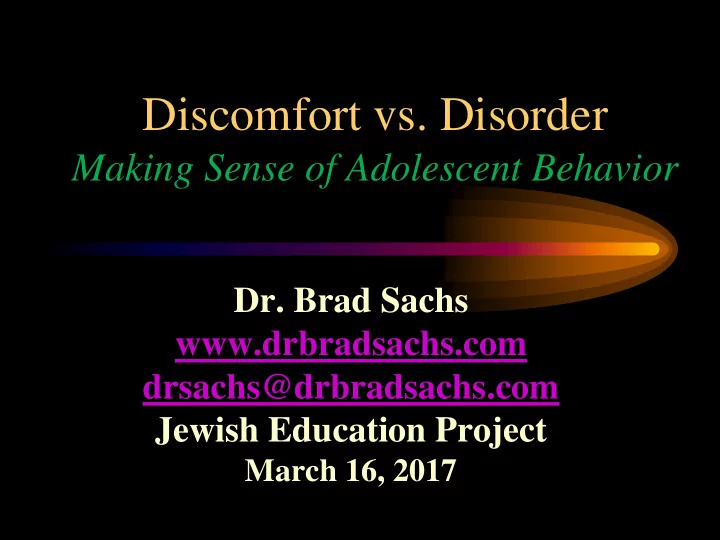

Solving the p roblem in problematic ways… It’s important for me to be seen as helpless so not too much is expected of me and no one has to move on I can’t stop acting self -destructively or everybody will think I’ve forgotten all the terrible things that have happened to me I cannot do what is being asked of me because I won’t feel like, or appear like, I’m my own person I will no longer recognize myself if I give up my maladaptive behavior, difficult as it may be for me
(Solving Problems ... ) If I can’t solve a problem on my own, it doesn’t count I’ll feel humiliated if I choose to improve, and everybody tells me, “I told you so,” and “There now, isn’t that better?” Doing things differently means admitting that the adults were right and I was wrong Making improvements means leaving my family behind
(Solving Problems ... ) If I become too successful, my parents will think that they’re no longer necessary I’m still too angry at my parents to make them proud of me and give them a chance to brag — I can best punish them by punishing myself If I make a change in the right direction, I’ll have to experience the pain of not having done so before
(Solving Problems ... ) If I fail, that means I’m a failure, so I must protect myself by not trying —I can’t lose a race if I never enter or finish a race
“NEVER HAVE A FAVORITE WEAPON…” Miyamoto Musashi 16 th Century Japanese swordfighter
COMPASSION Compassion is the capacity to remain fully in the presence of, and courageously bear witness to, the anguish and suffering of others, without succumbing to fear and its manifestations (withdrawal, exoneration, blame, etc.)
Interventions
Interventions
Intervening From “What Is Wrong With Him/Her?” To “What Is S/he Trying To Say?”
Martin Buber
Connecting Looking for: • What sparks his/her interest • What s/he can relate to • What is intriguingly different about him/her • What s/he is touched and moved by • What s/he is frustrated by
COLLABORATION (with teen) “ The answers to your struggle lie within you, not within me, but perhaps by talking together we can find some of these answers, and give you a reason to feel more hopeful” “You will be the driver, I will be the navigator, and I have taken trips like this many times before, although every trip is different. Let’s see where we go and how far we can get.”
Intervening How We Talk, What We Say…
Pot Dialogue I’m not happy to tell you this, but I was in your room while you were at school and found a bag of weed. Why were you in my room? I was actually cleaning things out You shouldn’t go into my room when I’m not there! I’ve told you this!
Recommend
More recommend